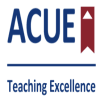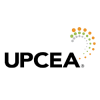Dive Brief:
- A think tank set up by the Higher Learning Commission (HLC), a regional accreditor, released a set of white papers this week offering broad ideas for accreditors' future in a higher ed world already being upended by change.
- The papers look at maintaining accreditors' role in quality control while revamping them to be more student-focused, capable of addressing new ways of learning and credentialing, and more clear about their responsibilities within the "triad" of federal and state regulators and nonprofit accreditors.
- They call on accreditors to better define quality and outcomes in a future that demands flexibility; support access to college and choice in options; develop new accreditation models that are quicker and more nimble; find new ways to recognize student learning; and work with state regulators to address quality concerns and duplication of effort.
Dive Insight:
The papers come as the U.S. Department of Education is convening rulemaking sessions aimed at removing regulations around accreditation with the stated goal of increasing innovation in higher ed. That goal also is a driving force behind the HLC group's proposals. (The word "innovation" appears 45 times in the 38-page set, including in its title.) HLC is also among the negotiators at the rulemaking session.
The papers outline a changing landscape for higher ed, where colleges are under growing pricing pressure and increasingly are delivering education to students using new technologies and beyond traditional two-year or four-year degree programs.
One of the papers, which covers the topic of making accreditors more "student-focused," considers ideas such as supporting a national service requirement between high school and college, and distributing Title IV money directly to students through a "learning account" to give them more control over how they pay for postsecondary education.
Another paper, around the "unbundling" of postsecondary education, looks at some of the new players, technologies and forces reshaping that word. They include lower list prices for some online courses, payment models that reduce financial risks for students, compressed terms such as those offered by boot camps and shifting faculty roles. The challenge for accreditors becomes how to ensure quality and consider programs outside their traditional purview, the authors write.
As the HLC think tank — which is supported in part by a grant from the Lumina Foundation and includes several higher ed leaders — considers accreditors' role in higher ed's future, the Ed Department and industry stakeholders are working through proposals that would carry the force of law to effectively change the world around accreditation.
Many of the Ed Department's proposals give colleges more power to create and change their own curriculum, and make it easier for accreditors to approve those changes. More specifically, the proposals so far would loosen federal oversight of accreditors and make it easier for new accreditors to enter the market. It would also ease the path for institutions to merge or undertake dramatic changes, and for institutions to outsource more of their academic operations to unaccredited third parties.
Critics worry there is little evidence such changes would increase innovation in higher ed and fear it could threaten educational quality. Many want to push regulation in the opposite direction, ensuring more oversight of accreditors and institutions. Incentives often point away from accreditors getting tough on colleges. Currently, peer, political and financial pressures all make it challenging for accreditors to take action against colleges with poor student outcomes.










